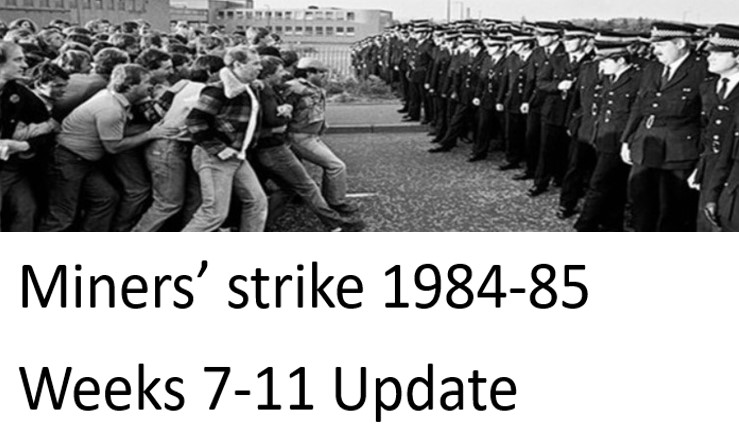The Tories have faced almost a perfect storm in the last week, with scandals of sexual impropriety in high places, forced ministerial resignations and, not least, continuing crisis over Brexit. Yet they still hang on.
Over the next fortnight, the Government is facing another critical period as the EU (withdrawal) Bill goes through the House of Commons and business leaders ramp up the volume in their demands for a ‘soft’ Brexit. Meanwhile, all the economic indicators point to a declining economy and limited options for the Chancellor Philip Hammond, facing his November 22 budget.
As a sop to the Brexiteers holding her as a cabinet hostage, Theresa May is not only attempting to enshrine in law the precise date of Brexit, she has even named the hour. The UK will leave the EU, she says, at exactly 11pm on the evening of March 29, 2019. Not a minute before and not a minute later. To placate opposition to the Brexit bill, including those in Tory ranks, David Davis, minister for exiting the EU, has conceded that parliament will have a final vote on the Brexit terms. He has not indicated, however, what this vote will signify: whether, for example, it could force a return to negotiations or if it is simply a ‘take-it-or-leave-it’ vote. He hasn’t even said if the vote would be held before the Brexit date. With many Tory ‘remainers’ in opposition to the Davis/May/Johnson line on Brexit, there may well be significant parliamentary defeats for the Government in the next week.
But as Parliament drags its way through the parliamentary bill, with its 500 amendments, the complete inability of the Tories to make any headway in its negotiations with EU leaders is causing consternation, not to say desperation, among British and European business leaders.
The latest 14-strong delegation from the Confederation of British Industry, along with many of their European equivalents, met May and Tory ministers this week, but they appeared to make little headway. Big companies like those in pharmaceutical, aerospace and automotive industries were well represented in this latest delegation and are particularly concerned about the effects of a no-deal scenario. These big capitalist companies have argued that if it looks like there is no deal in the pipeline soon, then these they will have to start making other plans. According to a CBI survey of their members, up to 60 per cent of UK businesses would be forced to make contingency plans by next March, if there is no deal in the offing.
“This is very urgent”, said the CBI director-general, after the meeting with May. “Firms will soon have no choice but to assume the worst in terms of planning for no deal…all business organisations present reiterated the damage a ‘no-deal’ scenario would do to trade” Business leaders want a transitional deal of at least two years and the chief executive of German BDI (CBI) even suggested that two years is “not enough”.
Honda is the latest big company to issue warnings about the dangers of a no-deal result with the EU. Giving evidence to the parliamentary business select committee this week, one of its top UK executives made reference to the Tories’ often-stated wish for a Brexit deal leading to “free and frictionless” trade. “Outside of the customs union”, he said, “there is no such thing as a frictionless border”. Honda’s Swindon assembly plant relies on 350 lorries arriving from Europe with 2m components, every single day. Even minor delays at ports would completely snarl up production and lead to much higher costs.
For the Society of Motor Manufacturers and Traders, customs and trade threats are only the start of their concerns. The SMMT fears “semi-catastrophic” results if there is an end to common EU/UK regulations and to the free movement of labour. The SMMT chief executive revealed that 10 per cent of its 800 members voted to leave the EU, but said he “had yet to meet a member who supported leaving now.”
This is (at least) the second time that business leaders have gone mob-handed to Tory ministers to demand that there is a transition period after the formal exit date of March 2019. A similar, all-British, delegation saw ministers in July. (http://www.left-horizons.co.uk/index.php?section=3&page=100)
In the aftermath of that delegation, The Financial Times – a far more serious capitalist paper than pro-Brexit rags like the Sun, Express, Mail, Telegraph, et al – spelled out clearly what was needed to move the EU negotiations along. “The onus is clearly on the UK to move first”, said its editorial on September 5. “Ministers have been evasive, if not downright dishonest, with the public about the true costs of Brexit.”
The Financial Times argued, like its business backers, for a transition period of at least two years, during which time, effectively nothing would change – there would be free movement of labour, membership of the single market and payments to the EU. “If the UK’s economic relations with the EU – and its budgetary contribution – remained effectively unchanged for three years after Brexit, a large proportion of the disputed bill would be paid off…”
The leader writers of the august Financial Times must be getting fairly exasperated by now, because they have more or less repeated the same editorial. “The onus is on Britain”, they write, “to unblock Brexit talks” (November 14).
Despite the clearly expressed wishes of the majority of business leaders, Tory Brexiteers are still full of bluster. Jacob Rees-Mogg is only the most recent of the seriously deluded, suggesting this week that the UK economy will gain by as much as £135bn over first five years of Brexit. What he doesn’t headline, of course, is that these economic guestimates are based on a number of assumptions, reflecting the views of the rabid right-wing the Tories, that corporation taxes are all but wiped out along with ‘red tape’ like rights at work and so on. These politicians are living in cloud-cuckoo-land and they have closed their eyes and ears to the real effects of a hard Brexit, as they have been spelled out time and again by business leaders and the Financial Times.
In the last analysis, money talks. Even Tory MP John Redwood, apparently one of the most delusional and vehement Brexiteers, speaks with a different voice when it comes to his investment advice. He happens to supplement his parliamentary salary by earning £180,000 as the chief global strategist for Charles Stanley, the investment managers. In a recent article, he advised investors to move their money out of the UK to Europe, where it will make better returns. This led a commentator from Forbes Magazine to suggest that the Redwood was advocating “a course of action by the UK government that he knows would seriously damage the UK economy…to me, this smacks of disaster capitalism”.
The financial sector has already complained about the necessity of retaining what are called “passport rights” allowing uninterrupted financial access both ways between the EU and London. But even these aren’t guaranteed…yet. Already, faced with uncertainty, banks are moving jobs to Frankfurt (3,000) and Paris (2,500). Paris has a thriving and growing business district, called La Défense and it has plenty of office space to take financial refugees from London. If there is no “passporting” agreement, says Valérie Pécresse, the head of the Îsle de France region around Paris, “I think Paris can gain 10,000 direct jobs.”
The only concession that David Davis has belatedly offered to the financial sector – free movement for bankers (and apparently no-one else) – is a completely unworkable fudge that will end up pleasing no-one. The Brexit omens, in a nutshell, are not looking good for the Government. Tory Europhile MP Anna Soubry may well be right when she says that the Government is actually preparing for a “no-deal” hard Brexit. The Financial Times, adding to the gloom, noted that “…it is doubtful whether the Prime Minister can secure a deal on transition before businesses start to vote with their feet.”
Jeremy Corbyn has summed up the Tories’ Brexit strategy quite clearly: “nearly 17 months since Britain voted to leave the EU, we are still none the wiser as to what our future relationship with our biggest trading partners is going to look like…the Government can’t give a lead because the cabinet is split down the middle.”
We have argued that there are really only two reasons why Theresa May has been able to hang on. Firstly, there is no alternative leader who could do anything better than she has done and secondly, and more importantly, Tory MPs, although deeply divided, can see Labour waiting in the wings.
But despite the Tories’ dread of a new general election, the possibilities of a Brexit disaster are looming larger as each week passes. Events are not always under the control of the Tory party elite and the press. The Tory Government may well implode and there may indeed be a general election in New Year.
It is not the job of the Labour Party in parliament, of course, to save the Tories’ bacon. If the May government does finally collapse, Labour will be poised to throw the Tories out. Indeed, if the Labour Party can do anything at all to shorten the life of this wretched government-for-the-rich, it has the duty to do so.
That is when the debate really begins. It will not be simply over Brexit, but over the whole direction of the Labour Government. The big debate inside the Labour Party will be between those who want the Labour government to “manage” capitalism better than the Tories – which will mean abandoning many of the policies that have drawn workers in the tens of thousands towards the Party – and those who want Labour to spearhead the replacement of capitalism with an altogether different system, one for the ‘many’ not the ‘few’.
November 15 2017



